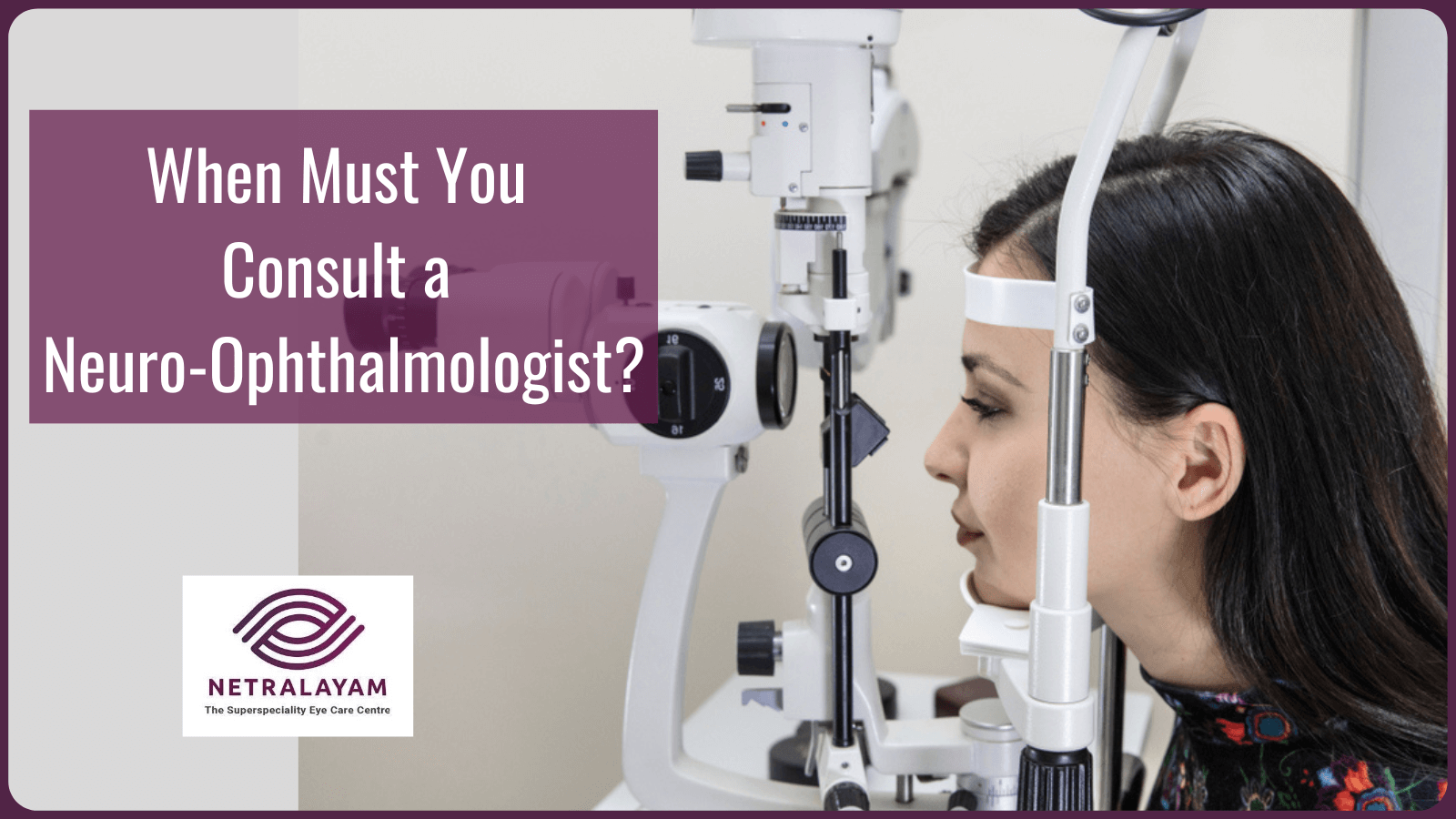Committed to Eye Care with Compassion, Technology and Competency
Committed to Eye Care with Compassion, Technology and Competency

1/9/2023
Your eyes are one of the most delicate and important organs of your body and need proper eye care to ensure that you have good vision for a long time. However, with advancing age, eye-related ailments such as cataracts and glaucoma are common among older people.
There are nearly 11.2 million people over the age of forty with glaucoma in India, while the number of people with cataract blindness is approximately 3.8 million. While these numbers are alarming, routine visits to your eye doctor can help in following preventive eye care.
However, for more serious eye complications, you may need a specialist like a neuro-ophthalmologist. Let’s discuss what neuro-ophthalmologists are and how they can help you.
A neuro-ophthalmologist is a certified physician with specialities in either ophthalmology and neurology or both and has expertise in problems of the eye, brain, nerves, and muscles. He diagnoses and treats neurological and systemic ailments that affect your vision that may be caused by brain injury, trauma, or diseases.
If you experience eyesight-related issues, you must consult your ophthalmologist, who will conduct certain eye tests and, if required, refer you to a neuro-ophthalmologist for the following symptoms:
A neuro-ophthalmologist focuses on visual problems related to varied neurological conditions that cause optic nerve impairments. The optic nerve is a bundle of fibres that transfers visual information from the eye to the brain. Any type of damage or pressure on these fibres can hamper their functioning and lead to several visual problems and impaired eye movement.
A neuro-ophthalmologist offers treatment for a wide range of conditions, such as:
Our neuro-ophthalmologists at Netralayam, a premier eye care hospital in Kolkata, are committed to providing the best and the most advanced eye care services to our patients experiencing eye discomfort or affected vision due to neurological issues. Our doctors have the experience and the expertise to offer you the highest standards of service that ensure the right diagnosis and treatment of your eye disease.
At our hospital, we also have a team of paediatric neuro-ophthalmologists dedicated to providing optimum eye care to infants and children with vision complications with utmost care and comfort.
If you are looking for a super-specialized eye hospital in Mukundapur, Kolkata, that offers a one-stop solution for a wide range of eye-related diseases with compassion and care, or the best neuro-ophthalmologist near you for your eyesight problems, contact our team at Netralayam for the best results. Our doctors aim to provide the highest standards of eye care service following the highest standards of patient-care protocol and work ethics.
A neuro-ophthalmologist is a medical doctor who specializes in the diagnosis and treatment of conditions, such as double vision, optic nerve disorders, and eye movement problems, that affect the nerves and muscles that control eye movement and vision. They often work closely with other medical professionals, such as neurologists and ophthalmologists, to provide comprehensive care to patients with neurological disorders that affect the eyes and vision.
When seeing a neuro-ophthalmologist, you can expect to undergo a thorough examination of your eyes and vision. The neuro-ophthalmologist will use the results of these tests, along with your medical history and other information, to diagnose any conditions you may have and recommend a treatment plan. You should also be prepared to discuss any symptoms you are experiencing and any questions or concerns you have with the neuro-ophthalmologist.
Neuro-ophthalmologists may use a variety of tests to diagnose and evaluate your eye conditions. Some common tests may include:
Comments are closed
